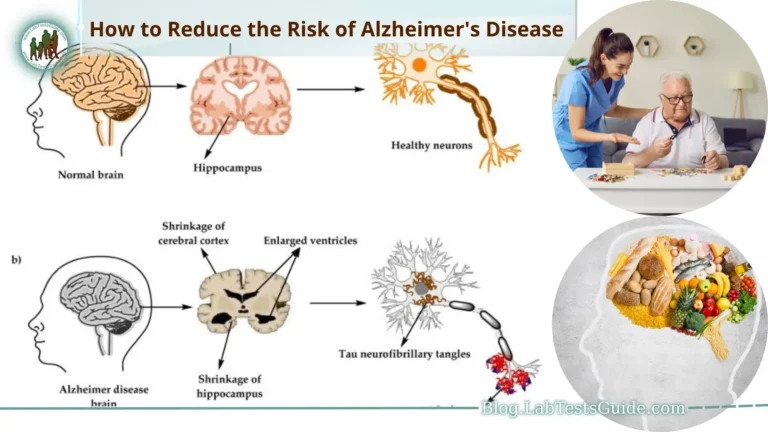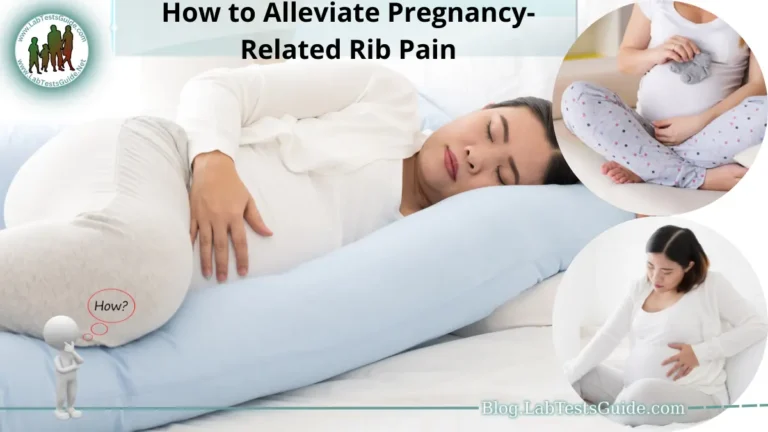In today’s fast-paced and demanding world, stress and anxiety have become common experiences for many people. Whether it’s due to work pressures, personal relationships, financial concerns, or other life challenges, prolonged stress and anxiety can take a toll on our physical and mental well-being. However, there are various strategies and techniques that can help us reduce stress and anxiety, allowing us to lead healthier and more balanced lives.

This guide aims to provide practical advice and insights on how to effectively manage and reduce stress and anxiety. It will explore the definitions of stress and anxiety, their interconnectedness, and the common symptoms associated with them. The guide will then delve into different approaches for stress reduction, including lifestyle changes, stress-reducing techniques, cognitive strategies, and seeking support. Additionally, it will highlight stress-reducing activities and offer tips for long-term stress management.
Understanding Stress and Anxiety
What is Stress?
Stress is the body’s natural response to demanding or challenging situations. It can be triggered by various factors, including work-related pressures, financial difficulties, relationship issues, or major life changes. When faced with stress, the body releases stress hormones, such as cortisol and adrenaline, which activate the “fight-or-flight” response. While some stress can be beneficial and motivate individuals to perform better, chronic or excessive stress can have negative effects on both physical and mental health.
What is Anxiety?
Anxiety is a psychological and emotional response characterized by feelings of fear, worry, and apprehension. Unlike stress, which is often tied to specific triggers, anxiety can be more generalized and persistent. It may arise from a variety of sources, including phobias, past traumas, or even without a clear cause. Anxiety can manifest in physical symptoms such as rapid heartbeat, sweating, trembling, and mental symptoms like excessive worrying, difficulty concentrating, and restlessness.
The Link Between Stress and Anxiety
Stress and anxiety are closely interconnected, and one can often lead to or exacerbate the other. Chronic stress can contribute to the development of anxiety disorders, while anxiety can heighten stress levels. When stress becomes overwhelming, it can trigger or worsen anxiety symptoms, leading to a cycle of stress and anxiety. Therefore, managing both stress and anxiety is essential for maintaining overall well-being.
Recognizing the Symptoms
Here are some common symptoms to be aware of:
Physical Symptoms:
- Increased heart rate and palpitations
- Muscle tension and headaches
- Fatigue and low energy
- Sweating and clammy hands
- Upset stomach or digestive issues
- Changes in appetite, either overeating or loss of appetite
- Insomnia or disturbed sleep patterns
- Weakened immune system, leading to more frequent illnesses
Emotional Symptoms:
- Excessive worry or feeling apprehensive
- Restlessness and irritability
- Feeling overwhelmed or unable to relax
- Difficulty concentrating or making decisions
- Mood swings and emotional instability
- Feelings of sadness or depression
- Racing thoughts or intrusive thoughts
- Fear or panic attacks
Behavioral Symptoms:
- Avoiding certain situations or activities
- Social withdrawal and isolation
- Changes in eating or sleeping patterns
- Increased use of substances (e.g., alcohol, drugs)
- Nail-biting, fidgeting, or other nervous habits
- Procrastination or difficulty initiating tasks
- Difficulty managing time and staying organized
- Impaired performance at work or in daily activities
Lifestyle Changes
Here are some lifestyle changes that can help reduce stress and anxiety:
Healthy Eating Habits:
- Eat a well-balanced diet with plenty of fruits, vegetables, whole grains, and lean proteins.
- Avoid excessive consumption of caffeine, sugar, and processed foods, as they can contribute to anxiety and mood swings.
- Stay hydrated by drinking an adequate amount of water throughout the day.
Regular Exercise:
- Engage in regular physical activity, such as walking, jogging, cycling, or any other form of exercise you enjoy.
- Exercise helps release endorphins, which are natural mood boosters and stress relievers.
- Aim for at least 30 minutes of moderate-intensity exercise most days of the week.
Sufficient Sleep:
- Establish a consistent sleep schedule and prioritize getting enough sleep each night.
- Create a calming bedtime routine to signal to your body that it’s time to unwind and relax.
- Avoid stimulating activities, electronic devices, and caffeine close to bedtime.
Avoiding Substance Abuse:
- Limit alcohol consumption and avoid recreational drug use, as they can exacerbate stress and anxiety symptoms.
- Instead of turning to substances for temporary relief, seek healthier coping mechanisms and support.
Stress Reduction Techniques
Here are some effective stress reduction techniques:
Deep Breathing Exercises:
- Practice deep breathing techniques, such as diaphragmatic breathing or box breathing.
- Take slow, deep breaths, inhaling through the nose and exhaling through the mouth, focusing on the sensation of breath entering and leaving the body.
- Deep breathing helps activate the body’s relaxation response and can be done anytime, anywhere.
Progressive Muscle Relaxation:
- Progressive muscle relaxation involves tensing and then relaxing different muscle groups in the body to release tension.
- Start with your toes and work your way up, tensing and relaxing each muscle group for a few seconds.
- This technique helps promote physical relaxation and reduces muscle tension associated with stress.
Mindfulness Meditation:
- Engage in mindfulness meditation, which involves bringing awareness to the present moment without judgment.
- Focus on your breath, bodily sensations, or the environment around you, allowing thoughts to come and go without becoming attached to them.
- Regular mindfulness practice can reduce stress, enhance self-awareness, and improve overall mental well-being.
Yoga and Tai Chi:
- Engage in yoga or Tai Chi, which combine physical movement, breath control, and mindfulness.
- These practices help promote relaxation, improve flexibility and balance, and reduce stress and anxiety levels.
- Find classes or online resources that suit your needs and abilities.
Journaling:
- Keep a stress journal to express your thoughts, feelings, and concerns.
- Write freely without judgment, allowing yourself to release emotions and gain clarity.
- Journaling can help you gain insight into your stress triggers and develop healthier perspectives.
Time Management:
- Effective time management can reduce feelings of overwhelm and improve productivity.
- Prioritize tasks, set realistic goals, and break them down into smaller, manageable steps.
- Use tools like calendars, to-do lists, or digital apps to organize your schedule and track progress.
Cognitive Techniques
Here are some cognitive techniques for stress reduction:
Cognitive Restructuring:
- Identify negative or distorted thoughts contributing to stress and anxiety.
- Challenge these thoughts by examining evidence and considering alternative, more realistic perspectives.
- Replace negative thoughts with positive and affirming statements.
Positive Self-Talk:
- Monitor your self-talk and replace self-critical or negative statements with positive and supportive ones.
- Encourage and motivate yourself with affirmations and reminders of your strengths and accomplishments.
- Practice self-compassion and treat yourself with kindness and understanding.
Reframing:
- Reframe challenging situations by looking at them from a different perspective.
- Identify potential opportunities or lessons that can arise from stressful circumstances.
- Seek out positive aspects or silver linings in difficult situations.
Visualization:
- Use guided imagery or visualization techniques to create calming and positive mental images.
- Imagine yourself in a peaceful and relaxing environment or visualize successfully overcoming challenges.
- Visualization can help promote relaxation and reduce stress responses.
Seeking Support
Here are some options to consider:
Talking to Friends and Family:
- Reach out to trusted friends or family members and share your feelings and concerns.
- Discussing your stressors and worries with loved ones can provide emotional support and different perspectives.
- They can offer a listening ear, empathy, and practical advice.
Seeking Professional Help:
- Consider consulting with a mental health professional, such as a therapist, psychologist, or counselor.
- A professional can provide you with valuable insights, coping strategies, and tools to manage stress and anxiety effectively.
- They can guide you through specific therapeutic techniques tailored to your needs.
Joining Support Groups:
- Look for support groups in your community or online that focus on stress management or anxiety.
- Connecting with others who are experiencing similar challenges can provide a sense of validation, understanding, and shared coping strategies.
- Support groups offer a safe space to share experiences and learn from others.
Stress-Reducing Activities
Here are some stress-reducing activities to consider:
Engaging in Hobbies:
- Dedicate time to activities you enjoy, such as painting, playing an instrument, gardening, cooking, or crafting.
- Hobbies provide a sense of pleasure and accomplishment, allowing you to focus on something enjoyable and divert your attention from stressors.
Spending Time in Nature:
- Spend time outdoors, whether it’s going for a walk in a park, hiking, or simply sitting in a garden.
- Nature has a calming effect and can help reduce stress and anxiety levels.
- Take in the fresh air, listen to the sounds of nature, and appreciate the beauty around you.
Listening to Music:
- Listen to soothing music or your favorite songs that uplift your mood.
- Music can have a powerful impact on emotions and help you relax and unwind.
- Create playlists tailored to different moods or activities to enhance the therapeutic effects.
Practicing Relaxation Techniques:
- Practice relaxation techniques such as deep breathing exercises, progressive muscle relaxation, or guided imagery.
- Set aside dedicated time each day to engage in these techniques and allow your body and mind to unwind.
- Explore relaxation apps or online resources that offer guided sessions.
Laughing and Humor:
- Watch a funny movie, read a humorous book, or spend time with people who make you laugh.
- Laughter releases endorphins and can help relieve stress and tension.
- Find ways to incorporate laughter and humor into your daily life.
Healthy Habits for Long-Term Stress Management
Here are some healthy habits to consider:
Prioritizing Self-Care:
- Make self-care a priority by allocating time for activities that nurture your physical, mental, and emotional well-being.
- This may include practicing self-compassion, setting boundaries, and engaging in activities that bring you joy and relaxation.
Setting Realistic Goals:
- Break down your goals into smaller, achievable steps to reduce overwhelm and increase a sense of accomplishment.
- Set realistic expectations for yourself and avoid excessive pressure to achieve perfection.
- Celebrate your progress and milestones along the way.
Maintaining a Supportive Social Network:
- Cultivate and maintain relationships with supportive and positive individuals.
- Surround yourself with people who uplift you, provide emotional support, and share common interests.
- Regularly connect and communicate with your support network.
Avoiding Overcommitment:
- Learn to say no when necessary and avoid taking on more responsibilities than you can handle.
- Assess your commitments and prioritize tasks based on their importance and impact on your well-being.
- Create healthy boundaries and manage your time effectively.
Conclusion
Stress and anxiety are common experiences in today’s fast-paced world, but there are effective ways to manage and reduce their impact on our lives. This guide has provided a comprehensive overview of strategies for reducing stress and anxiety.
By understanding the nature of stress and anxiety, recognizing their symptoms, and implementing lifestyle changes, individuals can proactively address their well-being. Engaging in stress reduction techniques, such as deep breathing exercises, mindfulness meditation, and progressive muscle relaxation, can help promote relaxation and calm the mind.






